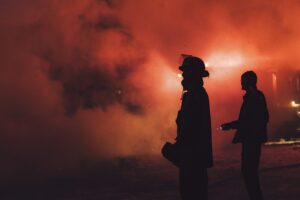Over half the world’s population live without the protection of adequate air quality standards, according to research published in the Bulletin of the World Health Organisation (WHO).
Air pollution varies greatly in different parts of the world, but across the globe, particulate matter (PM2.5) pollution is responsible for an estimated 4.2 million deaths every single year, in order to assess the global protection from it, researchers from McGill University set out to investigate global air quality standards.
The researchers found that where there is protection, standards are often much worse than what the WHO considers to be safe.
Many regions with the worst levels of air pollution, such as the Middle East, don’t even measure PM2.5.
The researchers also found that even the weakest air quality standards are often violated, particularly in countries such as China and India. In contrast, the strictest standards are often met in places like Canada and Australia.
Several jurisdictions with densely populated areas were successful in setting and enforcing strict standards. These included Japan, Taiwan, Singapore, El Salvador, Trinidad and Tobago, and the Dominican Republic.
Lead-author of the study, Parisa Ariya, a Professor in the Department of Chemistry at McGill University, said: ‘In Canada, about 5,900 people die every year from air pollution, according to estimates from Health Canada. Air pollution kills almost as many Canadians every three years as Covid-19 killed to date.’
Yevgen Nazarenko, co-author of the study added: ‘We adopted unprecedented measures to protect people from Covid-19, yet we don’t do enough to avoid the millions of preventable deaths caused by air pollution every year.
‘Our findings show that more than half of the world urgently needs protection in the form of adequate PM2.5 ambient air quality standards. Putting these standards in place everywhere will save countless lives. And where standards are already in place, they should be harmonized globally.
‘Even in developed countries, we must work harder to clean up our air to save hundreds of thousands of lives every year.’
Photo Credit – Pixabay

















Leave a Reply